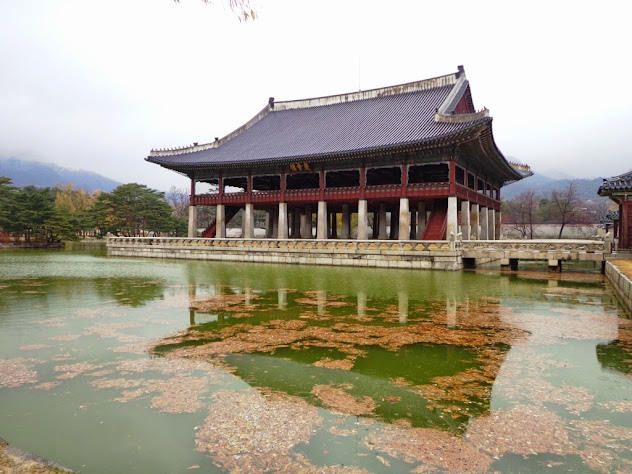Gyeongbokgung Palace (경복궁)
Geunjeongjeon Hall contains the royal court
I love palaces! Whenever I travel to another country with palaces, I want to make sure that it is added in my itinerary. With so little time in Seoul, and so many palaces to visit, we prioritized the Gyeongbokgung Palace, which is the largest and grandest among five.
Gyeongbokgung Palace was built in 1395 by the Joseon Dynasty, but it was destroyed during the Imjinwaeren War (Japanese Invasion, 1592-1598). Later on, during the reign of King Gojong (1852-1919), all the 7,700 rooms were restored.
Remarkably, the most important edifices of the Joseon Dynasty, Gyeonghoeru Pavilion, and Hyangwonjeong Pond are still intact. Woldae and the sculptures of Geunjeongjeon (The Royal Audience Chamber) shows past sculpture of contemporary art.
Admission Fees:
Adult (19-64 years old) - 3,000 won
Children (7-18 years old) - 1,500 won
*Closed on Tuesday
How to get there?
Gyeongbokgung Palace Station (Seoul Subway Line 3), Exit 5
or Gwanghwamun Station (Seoul Subway Line 5), Exit 2
Changing of the guards
Gyeonghoeru Pavilion was used for royal banquets and entertainment of foreign envoys.
Hyangwonjeong Pond
Sajeongjeon and Vicinity is the reception hall where the king met with his officials and presided over meetings.
Amisan Mound behind Gyotaejeon - the queen's living quarter
Gangnyeongjeon Hall is the king's sleeping quarter, but sometimes official functions were held on the stone veranda.










Comments